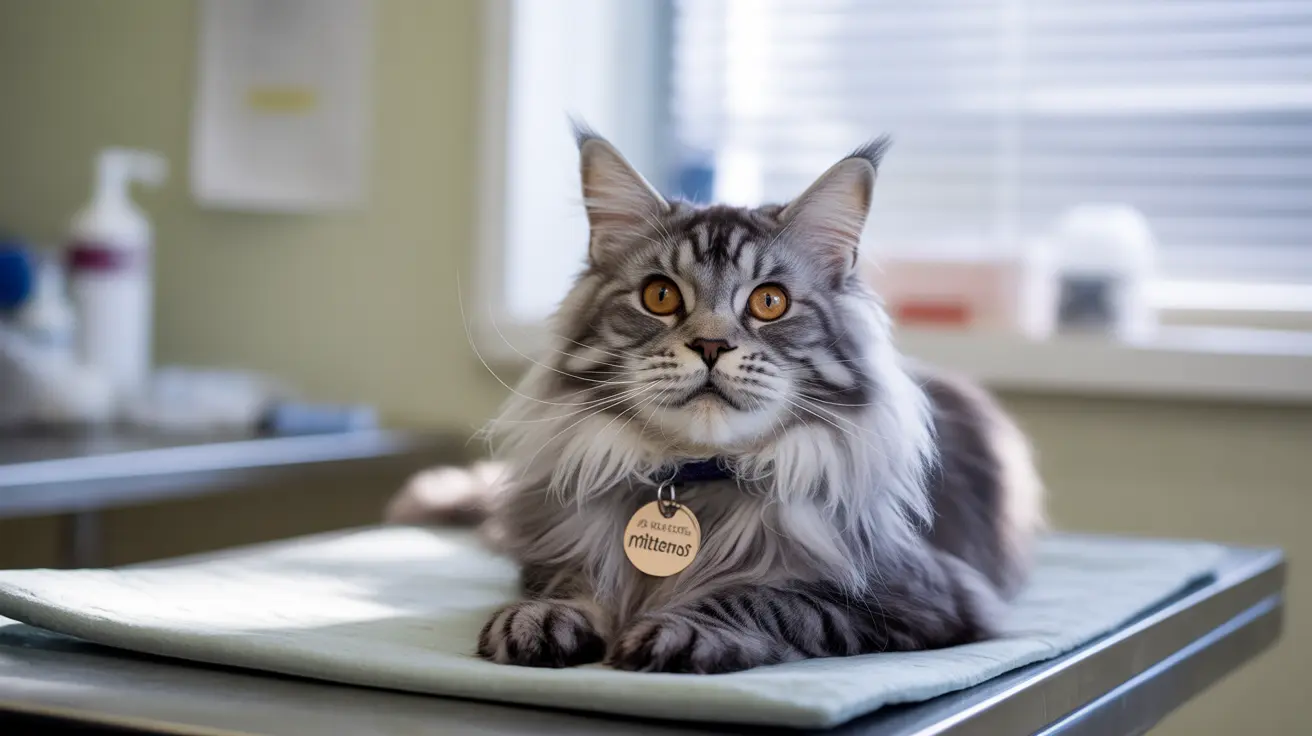Common Types of Cancer Causing Facial Swelling in Cats
Several types of cancer can manifest as facial swelling in cats, with some being more common than others:
Squamous Cell Carcinoma (SCC)
SCC is the most prevalent type of oral and facial cancer in cats. It typically develops in areas with light pigmentation or sparse hair, particularly around the nose, lips, and ears. Signs include:
- Visible swelling or lumps
- Ulcerated or scabby areas
- Raised, cauliflower-like growths
- Bleeding or discharge
Lymphoma
Feline lymphoma can cause facial swelling through lymph node involvement and impaired drainage. Common indicators include:
- Generalized facial swelling
- Enlarged lymph nodes
- Changes in eating habits
- Weight loss
Other Cancer Types
Additional cancers that may cause facial swelling include:
- Basal cell tumors
- Bone cancer
- Fibrosarcomas
Recognizing Warning Signs
Early detection is crucial for better treatment outcomes. Watch for these warning signs:
- Persistent facial swelling that doesn't resolve
- Difficulty eating or drinking
- Bad breath or excessive drooling
- Changes in behavior or appetite
- Visible masses or lumps
- Facial asymmetry
Diagnostic Process and Treatment Options
Veterinarians use several methods to diagnose facial cancer in cats:
- Physical examination
- Biopsy of suspicious areas
- Fine needle aspiration
- Imaging tests (X-rays, CT scans)
- Blood work
Treatment options vary depending on the cancer type and stage:
- Surgical removal of tumors
- Radiation therapy
- Chemotherapy
- Palliative care
- Combination treatments
Prevention and Risk Reduction
While not all cancers are preventable, certain measures can help reduce risk:
- Limit sun exposure for light-colored cats
- Regular veterinary check-ups
- Maintain good oral hygiene
- Avoid exposure to secondhand smoke
- Monitor for early signs of facial swelling
Frequently Asked Questions
What are the most common types of cancer that cause facial swelling in cats?
The most common types are squamous cell carcinoma (SCC), lymphoma, and basal cell tumors. SCC is particularly prevalent in the oral cavity and facial region of cats.
How can I tell if my cat's swollen face might be due to squamous cell carcinoma or another cancer?
Look for persistent swelling, ulcerated areas, difficulty eating, bad breath, and visible masses. Any facial swelling that doesn't resolve within a few days should be evaluated by a veterinarian.
What diagnostic tests do veterinarians use to determine if a cat's facial swelling is cancerous?
Veterinarians typically use a combination of physical examination, biopsy, fine needle aspiration, imaging studies (X-rays, CT scans), and blood tests to diagnose facial cancer.
What treatment options are available for cats diagnosed with facial cancer like squamous cell carcinoma?
Treatment options include surgery, radiation therapy, chemotherapy, or a combination of these approaches. The specific treatment plan depends on the cancer type, stage, and location.
Are there ways to prevent or reduce the risk of facial cancer in cats, especially related to sun exposure or environmental factors?
Yes, preventive measures include limiting sun exposure (especially for light-colored cats), avoiding secondhand smoke exposure, maintaining regular veterinary check-ups, and monitoring for early signs of facial swelling or masses.
If you notice any concerning changes in your cat's facial appearance or behavior, consult with your veterinarian promptly. Early detection and treatment can significantly improve outcomes for cats with facial cancer.






